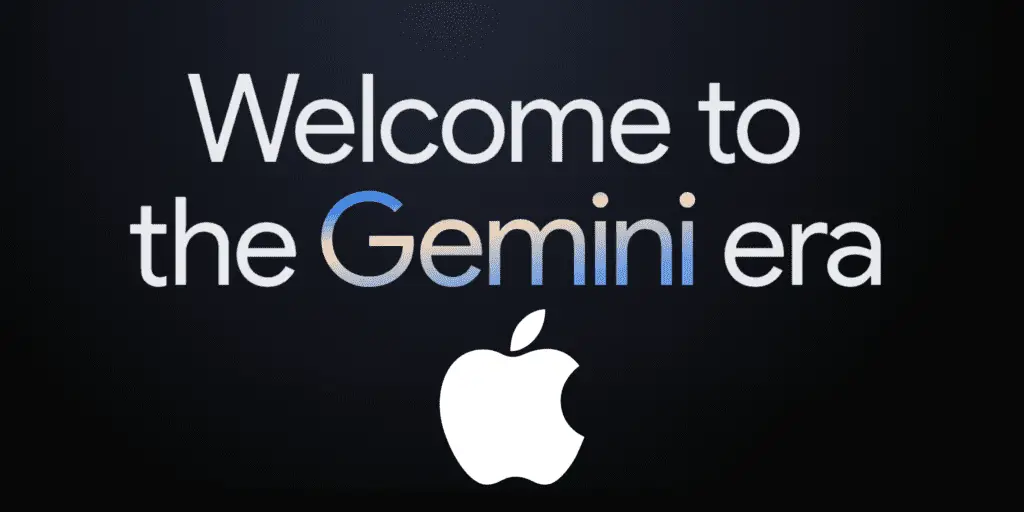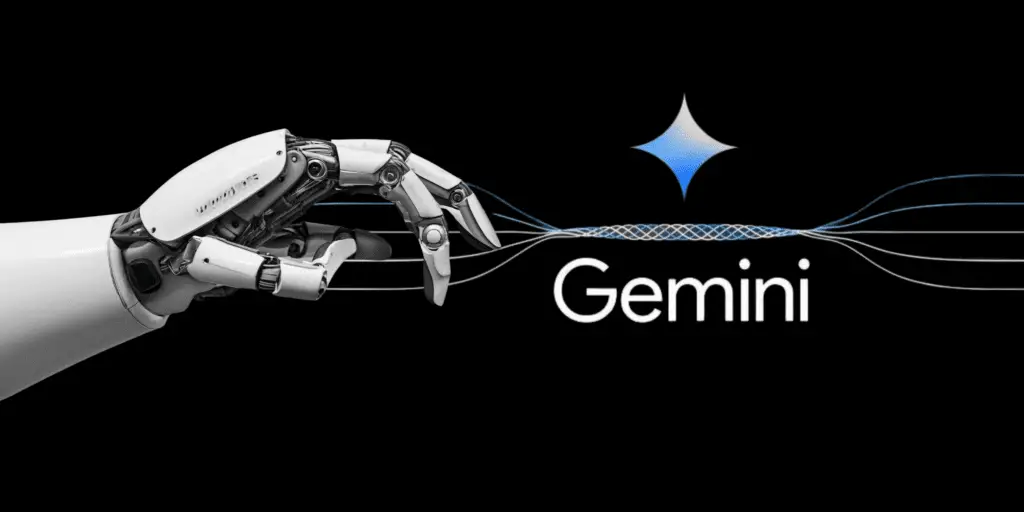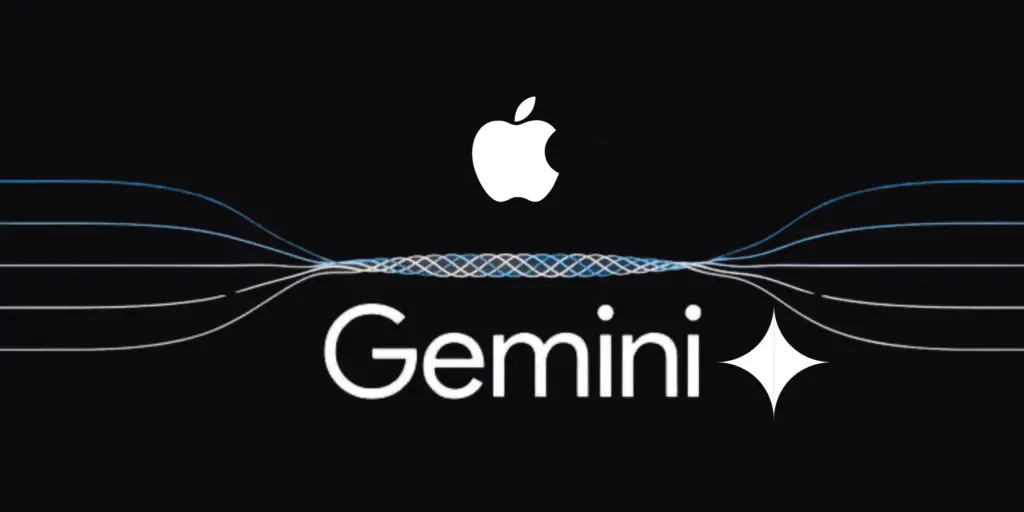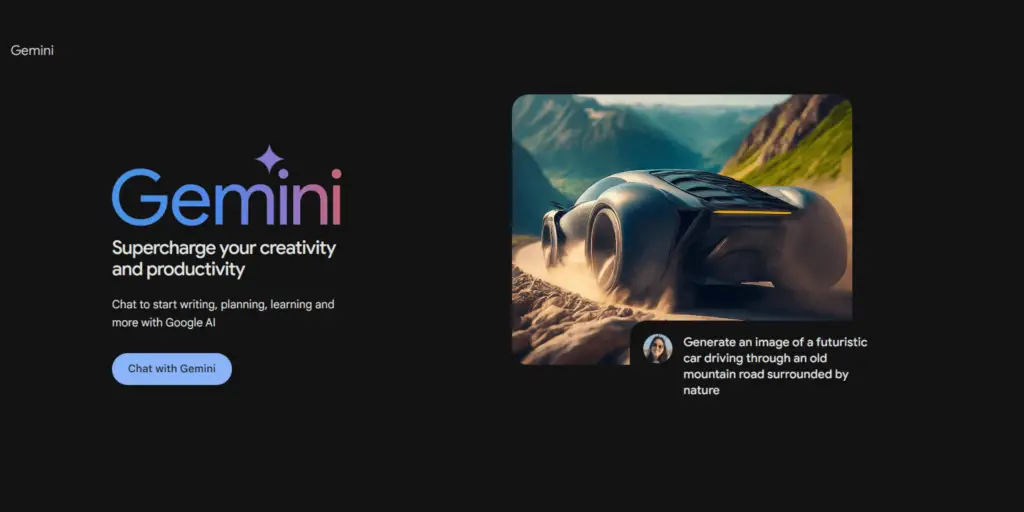Apple and Google are reportedly joining forces to usher in a new era of artificial intelligence on mobile devices. This collaboration, centred around Google’s cutting-edge Gemini AI platform, promises to transform the way we interact with our most personal technology: the iPhone.
News of this partnership first broke through a Bloomberg report, quickly gaining traction and further verification from The New York Times, igniting a flurry of speculation and anticipation within the tech community and beyond.
At its core, this alliance aims to integrate the advanced capabilities of Google’s Gemini AI into iOS, potentially revolutionizing features from Siri enhancements to AI-driven image editing and beyond.
Yet, as groundbreaking as this sounds, it also raises numerous questions about the integration’s execution, user privacy, and the dynamic of control between these tech titans.
Neither Apple nor Google has publicly commented on the rumours, adding an air of mystery and speculation to the discussions surrounding this potential technological milestone.
Background
The stage for this historic collaboration between Apple and Google is set against a backdrop of intense competition and innovation in the tech industry.
Traditionally, Apple and Google have been rivals, with each company leading its own charge in the realms of hardware and software development.
Apple’s sleek, user-focused hardware and integrated software ecosystem have long stood in contrast to Google’s open Android platform and dominance in web services and artificial intelligence.
In recent years, the tech landscape has been significantly reshaped by advancements in artificial intelligence, with generative AI becoming a particularly hot topic.
Companies like OpenAI, Microsoft, and Google have made significant strides, introducing the public to AI capabilities that seemed like science fiction just a few years ago.
Google’s announcement of bringing its on-device AI service, Gemini Nano, to the Pixel 8 signals a new frontier in mobile technology. AI is not just an added feature but a core component of the user experience.
Apple, while a leader in many aspects of technology, has found itself playing catch-up in the generative AI space. The company’s cautious approach to AI and privacy concerns has meant its AI offerings, like Siri, have not kept pace with competitors’ more advanced and integrated AI services.
This perceived lag has placed Apple in a challenging position, especially as consumer and industry expectations for AI capabilities continue to grow.
The partnership with Google, therefore, represents a strategic pivot for Apple. By integrating Google’s Gemini AI into iOS, Apple can leapfrog technological hurdles and bring its devices to the forefront of the AI revolution.
This move is critical not only for staying competitive in the fast-evolving tech landscape but also for meeting the high expectations of its user base and stakeholders.
With the annual Worldwide Developers Conference on the horizon, the pressure is on Apple to showcase its commitment to AI and innovation.
The tech community is buzzing with anticipation, eager to see how Apple will respond to the AI advancements of its rivals and how it plans to integrate Google’s Gemini AI into its ecosystem.
This collaboration, if it comes to fruition, could mark a pivotal moment in Apple’s history, signalling a new direction in its approach to artificial intelligence and technology development.

The Stakes for Apple
As Apple navigates the shifting landscapes of the tech industry, the stakes have never been higher. The integration of Google’s Gemini AI into the iOS ecosystem is not just a strategic move; it’s a necessity for Apple to assert its relevance in the rapidly evolving field of artificial intelligence.
This section explores the critical challenges and pressures Apple faces as it embarks on this collaboration. In the last couple of years, AI has moved from the periphery to the centre stage of technological innovation.
Companies like OpenAI, Microsoft, and Google have captivated the public’s imagination with generative AI that can write, create, and imagine at levels previously thought to be exclusive to human intelligence.
Apple, despite its vast resources and pioneering technology, appears to lag in this generative AI race. Its voice assistant Siri, once a marvel of AI on smartphones, has gradually fallen behind rivals in terms of versatility and intelligence.
This collaboration with Google is an opportunity for Apple to bridge this gap swiftly and effectively. With the Worldwide Developers Conference looming, Apple is under immense pressure to deliver something groundbreaking.
WWDC has traditionally been Apple’s platform for showcasing its innovation and setting the agenda for its technological direction.
As such, expectations are high for Apple to present a compelling AI strategy. The tech community and consumers alike are keen to see how Apple will respond to the generative AI advancements made by its competitors.
A mere focus on incremental hardware improvements or software tweaks will likely not suffice to satisfy the heightened expectations for AI innovation.
Apple’s decision to realign its resources, including scrapping its ambitious self-driving car project, underscores the company’s recognition of the urgency to advance in the AI domain. This strategic pivot reflects Apple’s commitment to not just participate in but lead the next wave of AI innovation.
The collaboration with Google on Gemini AI represents a critical part of this refocusing. It indicates Apple’s willingness to partner with erstwhile competitors to achieve its technological objectives.
Beyond keeping pace with the competition, Apple faces the intrinsic challenge of innovation itself. Integrating Gemini AI into iOS is not merely about catching up; it’s about pushing the boundaries of what’s possible with AI in consumer technology.
Apple’s legacy of intuitive, user-friendly design means that any AI features powered by Gemini will need to be not just innovative but also seamlessly integrated into the user experience. This challenge is compounded by the high standards Apple’s users have come to expect from the brand.

The Potential of Gemini on iPhone
The collaboration between Apple and Google to integrate Gemini AI into iOS opens a realm of possibilities, promising to redefine the iPhone experience with cutting-edge artificial intelligence capabilities.
This section explores the multifaceted potential of Gemini AI on the iPhone, from enhancing user interaction to revolutionizing content creation and management.
At the heart of this partnership is the potential transformation of Siri. The integration of Gemini AI could evolve Siri from a simple voice assistant into a more complex, conversational AI capable of understanding and executing tasks with unprecedented precision and contextual awareness.
This could mean a leap towards a more intuitive and interactive digital assistant, fulfilling the vision of Siri as a truly personal assistant.
Photography and videography are central to the iPhone experience. Gemini’s AI could introduce advanced editing features that leverage machine learning for tasks such as background replacement, facial expression adjustments, and even complex photo compositions.
This could democratize professional-grade photo and video editing, making these capabilities accessible to all users directly from their devices.
Building on the trend of AI-generated content, Gemini could allow iPhone users to create bespoke images or modify existing ones using simple voice commands or text inputs.
This feature could tap into capabilities similar to those seen in AI art generators, providing users with the tools to bring their creative visions to life with minimal effort.
The power of Gemini AI could significantly improve the iPhone’s language translation features, making real-time conversations across different languages smoother and more accurate.
This enhancement would be particularly beneficial for global communication, breaking down language barriers more effectively than ever before.
Perhaps one of the most innovative features could be the ability of Gemini AI to compile “snapshots” of the user’s day, intelligently summarizing activities, interactions, and information into a concise, accessible format.
This feature would serve as a digital memory aid, helping users to recall information and manage their lives more efficiently.
While the potential of Gemini AI on the iPhone is vast, it also presents challenges. Integrating such advanced AI capabilities into iOS while maintaining Apple’s high standards for user privacy and data security will be paramount.
The success of this integration will depend on how well these AI features are woven into the fabric of the iOS user experience, enhancing functionality without compromising simplicity or elegance.

Challenges and Expectations
The integration of Google’s Gemini AI into Apple’s iOS represents a watershed moment for both companies, promising to usher in a new era of smartphone capabilities. This groundbreaking collaboration is not without its challenges and expectations.
As Apple prepares to introduce these advanced AI features to its user base, several key considerations will shape the trajectory of this partnership and its success.
One of the most pressing challenges revolves around privacy and data security. Apple has long championed user privacy as a cornerstone of its brand identity, often positioning itself as a more secure alternative to competitors. Integrating Google’s AI technology into its devices raises questions about how user data will be handled and protected.
Both companies will need to address these concerns head-on, ensuring that the integration complies with Apple’s stringent privacy policies without compromising the functionality of Gemini’s AI features.
Apple’s ecosystem is renowned for its seamless integration and intuitive user experience. Introducing complex AI capabilities presents a challenge in maintaining this simplicity and elegance.
The integration must be executed in a way that feels natural to users, enhancing their interaction with the device without overwhelming them with complexity. Striking this balance will be crucial to the adoption and success of Gemini-powered features within iOS.
Another consideration is how this collaboration aligns with the branding and corporate identities of both companies. For Apple, working so closely with a competitor like Google marks a significant shift in strategy.
The presence of Google’s AI technology in Apple’s flagship product could raise questions about Apple’s own capabilities in AI and innovation.
Managing this perception will require careful branding and communication, ensuring that the collaboration is seen as a partnership that enhances the iPhone rather than a concession of Apple’s own technological prowess. The hype surrounding the integration of Gemini AI into iOS sets high expectations among consumers.
Users will anticipate significant improvements in AI-driven functionalities, such as enhanced Siri capabilities, advanced photo editing, and more intelligent device interactions.
Meeting these expectations will be critical to the collaboration’s success, requiring both Apple and Google to deliver innovative features that clearly demonstrate the value of this partnership.
Finally, this collaboration does not occur in a vacuum. The tech industry is highly competitive, with companies like Microsoft, Amazon, and smaller startups continually pushing the boundaries of what’s possible with AI.
Apple and Google will need to navigate this landscape carefully, ensuring that their partnership not only keeps pace with the competition but sets new standards for AI integration in mobile devices.

Final Thoughts
The proposed collaboration between Apple and Google to integrate Gemini AI into iOS is a testament to the transformative power of artificial intelligence in shaping the future of technology.
This partnership, poised on the cutting edge of innovation, symbolizes a pivotal moment in the tech industry, where two giants are willing to bridge their longstanding rivalry for the sake of groundbreaking advancements.
As we consider the vast potential, the significant challenges, and the sky-high expectations, it becomes clear that this endeavour is not just about enhancing a smartphone’s functionality—it’s about redefining what we expect from our devices and, in a broader sense, from the technology itself.
The integration of Gemini AI into the iPhone promises to bring about a new era of intelligent assistance, advanced content creation, and personalized digital experiences.
Yet, the journey towards realizing this vision will be fraught with challenges, from ensuring user privacy and maintaining the integrity of the iOS ecosystem to navigating the complexities of consumer expectations and the competitive landscape.
How Apple and Google address these challenges will be crucial to the collaboration’s success and its reception among users.
Beyond the technical and strategic implications, this collaboration underscores a broader trend in the tech industry towards openness and cooperation.
In a domain once defined by siloed innovation and fierce competition, Apple and Google’s partnership reveals a growing recognition of the benefits of collaboration in achieving breakthroughs that no single company could accomplish alone.
This shift towards collaborative innovation could inspire other companies to explore similar partnerships, potentially leading to an era of unprecedented technological advancement.
The potential integration of Google’s Gemini AI into iOS marks a significant milestone in the evolution of mobile technology.
As Apple and Google embark on this ambitious project, the tech community and consumers alike watch with bated breath, eager to witness the birth of the next generation of AI-powered devices.
The success of this collaboration could not only redefine the capabilities of the iPhone but also set new standards for the integration of artificial intelligence in our digital lives.


